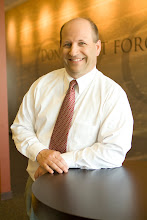Don't Expect Others To Do What You Don't
Don't Expect Others To Do
What You Don't Do Either
What You Don't Do Either
by: Brendan Magee
Oct. 2012
To be a fiduciary means that you are someone who is responsible for money that is intended for someone else's benefit. For example you may be the trustee to money that is intended for someone's grandchildren which will be handed over to them at some point in the future.
You could even be a person who is serving on a board of trustees that holds accounts that are to be handed over upon retirement. When someone is acting in a fiduciary capacity, they have a legal obligation to the people who are going to benefit from that money. If bad investment decisions are made, the beneficiaries can hold all fiduciaries responsible and can sue for damages.
"The Crash Proof Retirement Show" was making the case that that liability is not something that brokers and planners are subject to. Therefore they can, without too much fear of reprisal, make investment recommendations to their clients and not worry if the investments crash.
In essence brokers and planners can profiting from making investment recomendations that are not safe or suitable in particular for retirees, and no doubt there is evidence that conflicts of interests have occurred in the past. The show aslo made a good point that most investors are not aware of the lack of safeguards when dealing with brokers and planners. Again, all good points.
What I thought was even more telling than what the show's hosts were saying about the lack of fiduciary standards that brokers and planners were subject to was the fact that I didn't hear the show's hosts say that they were acting as a fiduciary when making investment recommendations to their clients.
The hosts were making the case that the lack of fiduciary standards was reason enough to not trust the advice of brokers or financial planners. However, merely pointing this out to you was the reason in which you could trust the recomendations and education you will receive from them. I can't see the ethics in trying to hold your competitors up to a standard that you yourself aren't willing to live up to.
I thought I would share with you one way to identify whether or not you are dealing with someone who is acting on and is well versed in the fiduciary standards of care. Ask the advisor if they are an Accredited Investment Fiduciary, AIF. Just like accountants have professional designations for which they need to pass courses and follow through with continuing education requirements, so do financial advisors who wish to specialize in a fiduciary standards for investing.
To become an AIF requires enrolling in, passing the course, fulfilling on continuing education requirements that are laid out by the University of Pittsburgh's Center for Fiduciary Studies.
When dealing with investments, be it your own or for those that are for the benefit of some body else, an AIF is specifically trained in the standards of care that must be applied in order to maintain and demontstrate prudence. Perhaps most importantly, AIF's know that should they stray from those standards of care they as well as all other fiduciaries of that account, are subject to a legal liabilty and can be sued for damages.
So no doubt, I think it's not in the investor's best interests to be dealing with a broker or financial planner who is not acting in a fiduciary manner in regards to their investments. I also do not believe it is very ethical or honest to create the illusion that you are acting in a fiduciary capacity when you are not. I also think it is good to be able to very quickly identify whether or not you are dealing with an advisor who is acting in a fiduciary capacity or not. All you need to do is ask if they are an AIF.
Brendan Magee is the founder and president of Inevitable Wealth Coaching. With questions or comments call 610-446-4322 or e-mail brendan@coachgee.com.


0 Comments:
Post a Comment
Subscribe to Post Comments [Atom]
<< Home